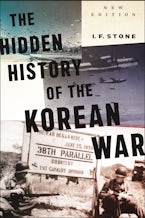Isidor Feinstein Stone (1907–1989), better known as I.F. Stone or Izzy Stone, published more than a dozen books and was considered one of the most influential investigative journalists of the postwar period. He was best known for his self-published journal, I.F. Stone's Weekly, which in 1999 was ranked second in a poll of his fellow journalists of "The Top 100 Works of Journalism in the United States in the 20th Century." He started the weekly after working at the New York Post, The Nation (as editor from 1940 to 1946), and the newspaper PM, covering the New Deal, McCarthyism, the birth of Israel, and the Vietnam War.
Greg Elich is a Korea Policy Institute associate and on the board of directors of the Jasenovac Research Institute. He is a contributor to the collection, Sanctions as War: Anti-Imperialist Perspectives on American Geo-Economic Strategy.
Tim Beal is a retired New Zealand academic with a special interest in U.S. imperialism mainly, but not exclusively, in respect of Asia. He first read Izzy Stone’s book as an undergraduate at Edinburgh University in 1970. Enthused, he wrote a long undergraduate essay based on it. Though not well-received at the time, the process initiated a journey of discovery that has resulted in two books and numerous articles on Korea and imperialism.

